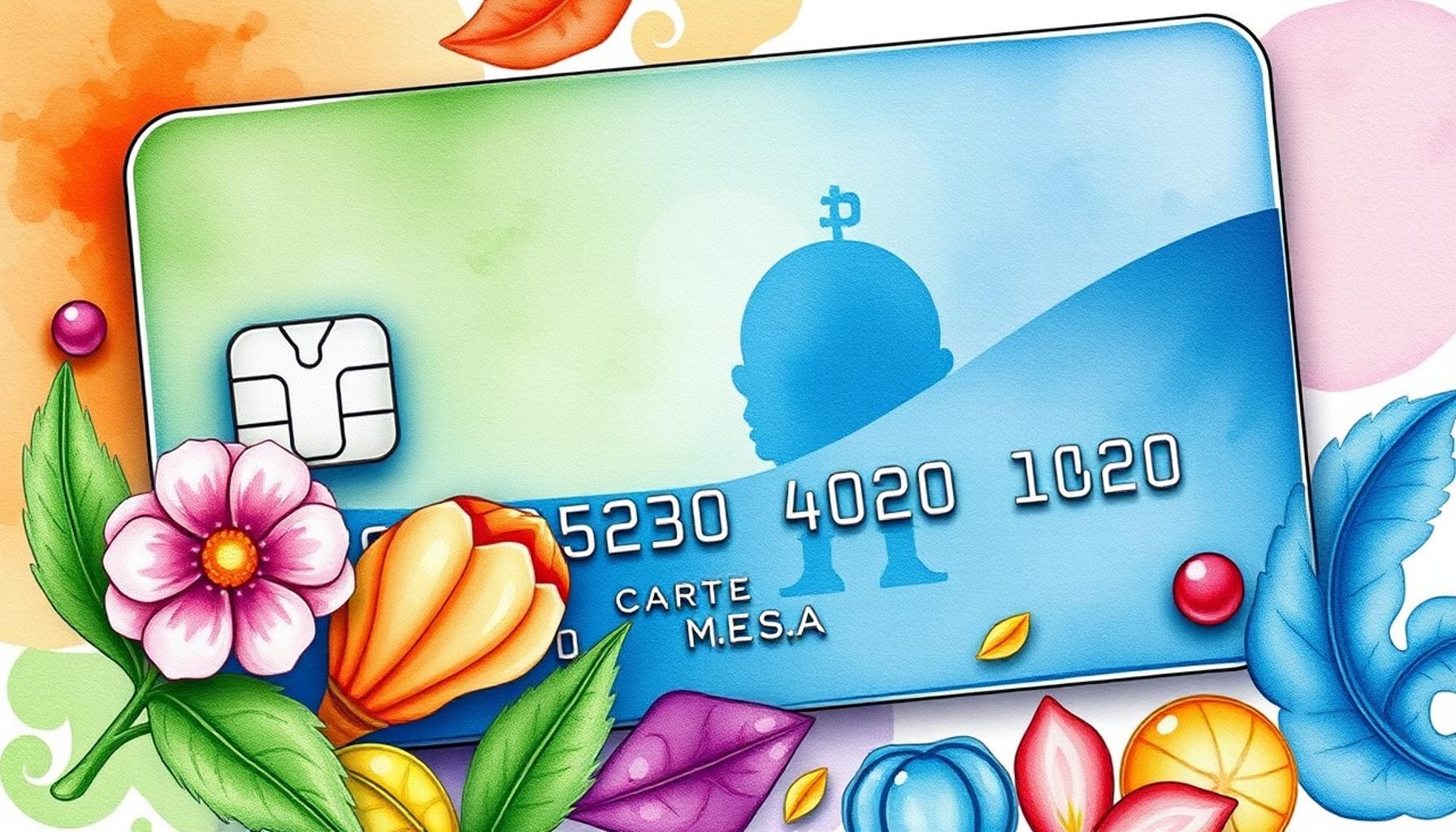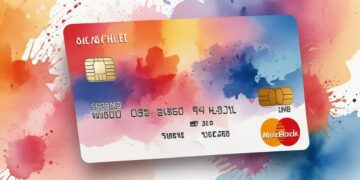Difference Between Credit Card and Prepaid Debit Card

Understanding Your Payment Options
When it comes to managing your finances, choosing the right payment method is crucial. Two popular options are credit cards and prepaid debit cards, each offering unique features and benefits. Understanding these differences can help you make informed decisions for your financial needs.
Key Differences
Here are some of the main distinctions between credit cards and prepaid debit cards:
- Credit Limits: Credit cards allow you to borrow funds up to a certain limit, typically determined by your creditworthiness. For example, if you have a credit limit of $5,000, you can make purchases up to that amount, even if you don’t have that cash on hand. In contrast, prepaid debit cards only let you spend what you have loaded onto the card. If you load $500 onto a prepaid card, your spending is limited to that balance. This characteristic can be particularly beneficial for budgeting since it helps prevent overspending.
- Interest Rates: Credit cards typically involve interest charges if balances are not paid in full by the due date. For instance, if you carry a balance of $1,000 with an interest rate of 15% annually, you could end up paying an additional $150 in interest if you do not pay off the balance promptly. Conversely, prepaid debit cards do not accrue interest since they use your own money. This means you don’t have to worry about unexpected fees accumulating over time, which can be a comforting aspect for those who prefer to keep their finances straightforward.
- Rewards Programs: Many credit cards offer rewards such as cash back, travel points, or discounts on future purchases. For example, a credit card might give you 2% cash back on grocery purchases, which can add up significantly over time. In contrast, prepaid debit cards usually lack such incentive programs, meaning you won’t earn rewards for using the card. This difference may be a deciding factor if you frequently use your card for everyday expenses and want to benefit from cashback offers or travel bonuses.
Now, let’s explore each option further to gain a deeper understanding of how they work. Credit cards can be particularly useful for building credit history, which is essential if you plan to make significant purchases in the future, such as buying a home. On the other hand, prepaid debit cards can be ideal for those looking for a simple way to manage their spending without the risk of accruing debt or interest.
In conclusion, understanding the differences between credit cards and prepaid debit cards will empower you to choose the best payment option based on your lifestyle and spending habits. Carefully consider factors such as your need for a credit limit, your ability to manage any potential debt, and whether or not you can benefit from rewards programs. By evaluating these elements, you can make an informed choice that aligns with your financial goals.
SEE ALSO: Click here to read another article
Diving Deeper into Credit Cards
Credit cards provide more than just a means to make purchases; they are powerful financial tools that can assist you in building a solid credit history. Having a good credit score can open doors to lower interest rates on loans, higher credit limits, and better financial opportunities in the future.
When you use a credit card, the issuer lends you money up to a defined limit, and you are expected to pay it back—usually on a monthly basis. This borrowing process is where credit cards distinguish themselves. They also often come with various features and benefits designed to incentivize responsible use. Here are some notable components to consider:
- Credit Reporting: Credit card usage is reported to credit bureaus. Timely payments can enhance your credit score, while late payments may negatively impact it. Regularly using your credit card for purchases and paying it off can be an effective strategy to maintain and improve your creditworthiness over time.
- Purchase Protection: Many credit cards offer protections on purchases, such as extended warranties, price protection, and fraud liability coverage. For instance, if someone makes an unauthorized purchase on your card, you typically won’t be held responsible, adding an extra layer of security to your transactions.
- Balance Transfers: Some cardholders might utilize credit cards for balance transfers—moving debt from one card with a higher interest rate to one with a lower rate. While this can be a strategic way to save money on interest payments, it’s essential to read the terms carefully to avoid fees and understand how long the low rates will last.
Utilizing a credit card responsibly can offer financial flexibility and additional benefits, making them an attractive option for many consumers. However, leadership in terms of spending habits is essential. Many individuals struggle with credit card debt, as it can create a cycle of borrowing that may lead to financial stress. Being disciplined about your usage is crucial in ensuring you benefit from a credit card without falling into the trap of accumulating debt.
Exploring Prepaid Debit Cards
On the other hand, prepaid debit cards offer a different approach to managing finances. Prepaid cards are not linked to a bank account but operate similarly to gift cards; you load money onto them, and that becomes your spending limit. This feature can be beneficial for various reasons:
- Control Budgeting: Prepaid cards can help you adhere to a strict budget. Since you can only spend what you load onto the card, you won’t accidentally overspend or incur debt. This feature is particularly useful for young adults who are just learning about money management or individuals trying to stick to a specific financial plan.
- No Credit Checks: Obtaining a prepaid debit card typically does not require a credit check, making them accessible to individuals with no credit history or poor credit. This inclusivity allows more people to have a convenient payment option in their wallets.
- Convenience for Traveling: Many travelers opt for prepaid cards as a safe alternative to carrying cash. They can be used anywhere credit or debit cards are accepted, making them handy for overseas purchases without incurring foreign transaction fees typical of some credit cards.
In summary, understanding how the features of credit cards and prepaid debit cards differ can significantly impact your financial choices. Each option has its advantages and challenges, making it essential to evaluate which card aligns with your lifestyle and spending habits to facilitate more informed decisions.
CHECK OUT: Click here to explore more
Understanding the Limitations and Considerations
While both credit cards and prepaid debit cards have their unique advantages, it’s equally important to understand their limitations and potential downsides to make informed financial decisions.
- Limited Consumer Protections: Unlike credit cards, prepaid debit cards often come with limited consumer protections. For instance, if you lose your prepaid card or it gets stolen, your recourse to recover lost funds may not be as robust as it would be with a credit card. Credit cards tend to provide stronger fraud protection, often shielding users from liability for unauthorized transactions. Thus, if security is a priority in your spending habits, you might want to carefully consider whether a prepaid option meets your needs.
- Fees and Charges: Prepaid debit cards can come with various fees, such as activation fees, monthly maintenance fees, and ATM withdrawal fees. These costs can quickly add up and may diminish the benefits of using a prepaid card. On the other hand, while many credit cards also have annual fees, it’s possible to find options—especially those tailored for individuals with good credit—that come without any annual fees or offer rewards that can outweigh those costs. Always read the fine print to ensure you understand the fee structure before you choose a card.
- Non-Reloadability: Some prepaid debit cards are not reloadable. Once you have used up the balance, the card becomes effectively useless unless it is a disposable card designed for one-time use. In contrast, credit cards provide ongoing access to credit as long as you remain within your credit limit, giving you the flexibility to manage various expenses over time.
- Spending Limitations: With a prepaid debit card, once your balance is depleted, you cannot spend any further unless you top it up. This can serve as both a blessing and a curse; while it enforces financial discipline, it can also restrict your ability to make unplanned purchases in emergencies. Conversely, credit cards allow for expenditures that can be repaid later, potentially covering unexpected costs without immediate financial strain.
Another element to consider is the structure of interest rates. Credit cards usually have interest rates that can vary significantly, especially if balances are carried over. Not only is it vital to be aware of how interest accrues in the case of a credit card, but it’s equally important to consider budget management; knowing your spending habits can prevent falling into debt traps.
Furthermore, the use of credit cards is often tied to rewards programs, which can provide cash back, points for travel, or other incentives. This aspect encourages cardholders to use their cards regularly while paying off the balance in full each month to avoid interest charges, thus maximizing benefits. Prepaid debit cards, by contrast, do not generally offer such rewards, so you may not receive any added value beyond the convenience of cashless transactions.
Ultimately, your choice between a credit card and a prepaid debit card should align with your financial goals and lifestyle. Understanding the restrictions and incentives each option brings to the table can significantly influence how you manage your money effectively and responsibly.
CHECK OUT: Click here to explore more
Conclusion
In summary, the choice between a credit card and a prepaid debit card hinges on a variety of personal financial considerations and preferences. While credit cards provide the advantage of revolving credit, potential rewards, and robust consumer protections, they also come with the risk of accruing interest and falling into debt if not managed wisely. On the other hand, prepaid debit cards promote strict budgeting as they only allow spending based on preloaded funds, yet they may lack essential consumer protections and can carry hidden fees that diminish their apparent benefits.
When deciding which option suits you best, consider factors such as your spending habits, financial objectives, and the level of risk you are willing to assume. For example, if you are concerned about overspending and prefer a cash-based approach, a prepaid debit card might be more suitable. However, if you aim to build your credit score, take advantage of rewards, or need additional security against fraud, a credit card may be the better choice. The key is to align your card choice with your overall financial health and goals.
Ultimately, being informed about the differences between these two financial tools will empower you to make decisions that support your long-term financial well-being. Taking the time to evaluate your specific needs can lead to more effective money management and greater peace of mind in your transactions.

Linda Carter is a writer and financial expert specializing in personal finance and financial planning. With extensive experience helping individuals achieve financial stability and make informed decisions, Linda shares her knowledge on the Take Care Garden platform. Her goal is to empower readers with practical advice and strategies for financial success.





